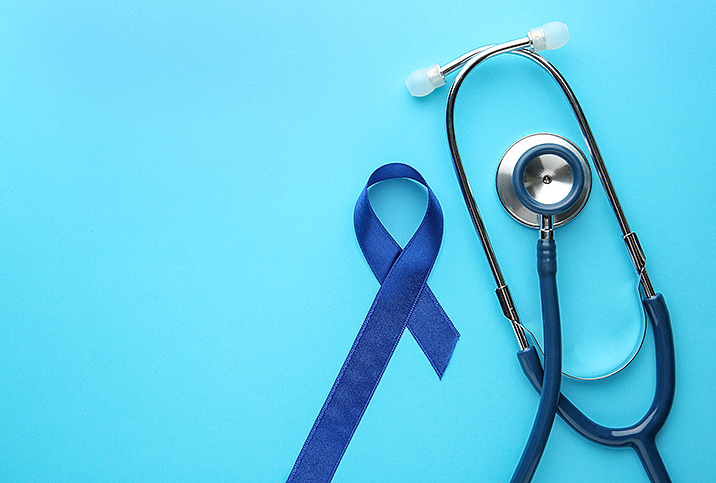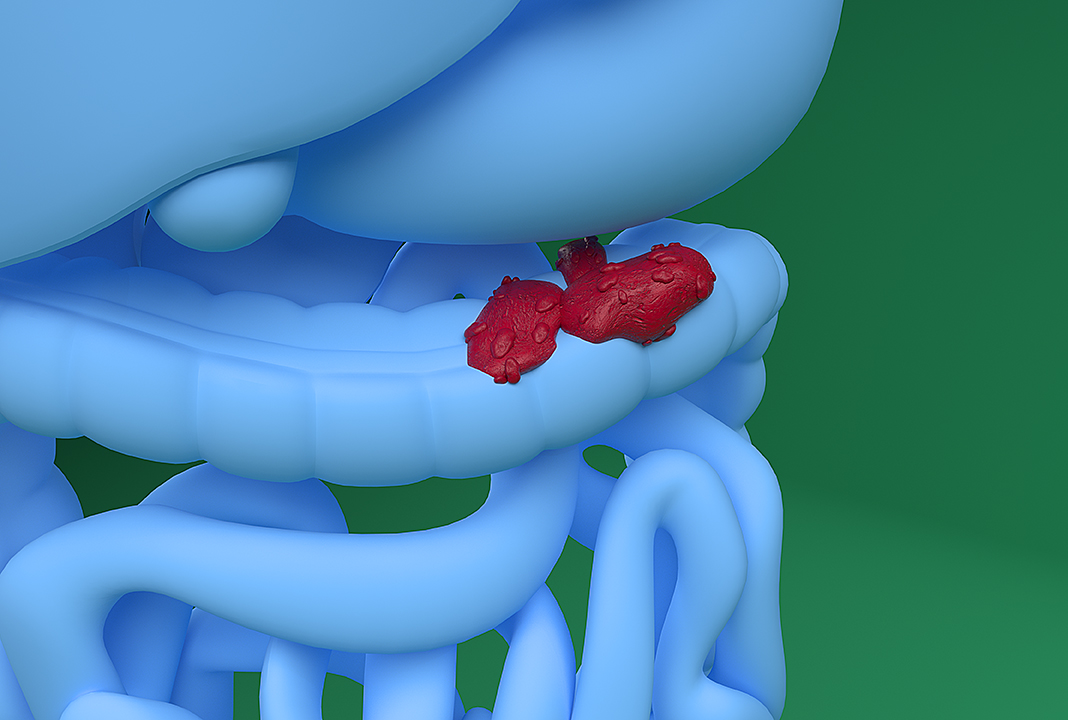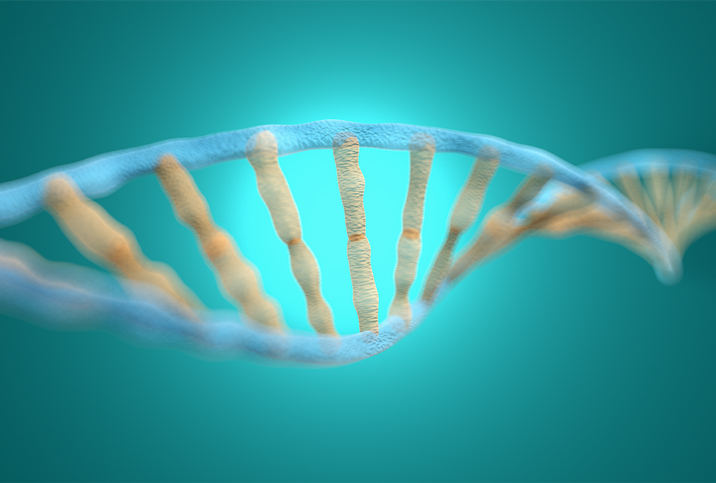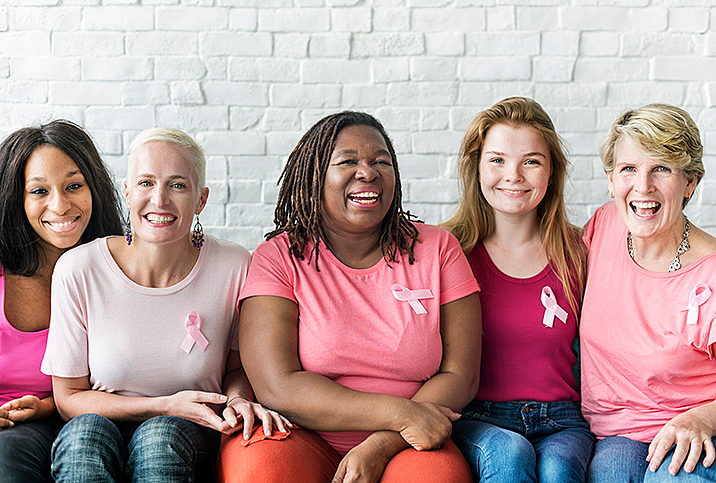Lynch Syndrome Is a Cancer You May Have Inherited

Genetics explains so much about who we are on a physiological level, giving us insight into overall health and the preventive care best for us. Knowing a little bit about your genes can be good, but in the case of Lynch syndrome, understanding your genetics could save your life.
A family disorder
According to the Centers for Disease Control and Prevention (CDC), Lynch syndrome is a hereditary non-polyposis colorectal cancer (HNPCC), and it is the most common cause of hereditary colorectal (colon) cancer. A number of inherited syndromes can cause colon and endometrial cancer, but Lynch syndrome is the most common, with doctors estimating it's responsible for an average of 3 in 100 diagnosed cases.
Common indications of Lynch syndrome are colon cancer diagnosis before age 50, a family history of colon and endometrial cancer at a young age, and a family history of other related cancers such as ovarian cancer, kidney cancer, stomach cancer, small intestine cancer, liver cancer, sweat gland cancer (sebaceous carcinoma) and other cancers.
"In order to make a diagnosis of Lynch syndrome, an individual has to undergo germline genetic testing for the mismatch repair genes [MLH1, MSH2, MSH6, PMS2 and EPCAM] using a blood or saliva sample," said Heather Hampel, a licensed genetic counselor and associate director for the Division of Human Genetics at City of Hope National Cancer Center in Southern California. "If a pathogenic variant or likely pathogenic variant is found in one of those genes in the blood or saliva, that means that the individual inherited that gene change from one of their parents and has Lynch syndrome."
Lynch syndrome is the most common cause of hereditary colorectal (colon) cancer.
Georgia Hurst, an advocate for people with Lynch syndrome and a writer for Cure Today, went through such testing for her own Lynch diagnosis.
"My oldest brother died of colon cancer in 1995 at the age of 36," she said. "No one ever mentioned Lynch syndrome to us then. My second brother developed colon cancer in 2010 (age 48) and again in 2011. His doctor recommended that my brother and I undergo genetic testing. I asked my gastro for a referral to a genetic counselor. When I met with the certified genetic counselor, we discussed the implications of undergoing genetic testing and what a Lynch syndrome diagnosis could involve. I waited for a week and then had my blood drawn. I tested positive for MLH1 a few weeks later."
The genetics of Lynch syndrome
The mismatch repair genes are like spell checkers for our bodies. When our cells divide, they have to copy their set of 20,000 genes exactly to make a new cell. Occasionally, mistakes happen in the process. This is a natural part of the aging process, but our mismatch repair genes recognize when certain types of mistakes occur and repair them.
"If you have Lynch syndrome, you are born with one mismatched repair gene not working because it contains a pathogenic variant," Hampel said. "But the other working copy from your other parent will compensate for many years and those repairs will get made. However, with millions of cells in our body, the odds are high that in one of the at-risk organs—the colon, uterus, ovaries, stomach—a cell will acquire a pathogenic variant in the working copy of the mismatch repair gene and then that cell will lose its ability to repair DNA mistakes as they occur naturally."
When one cell accumulates enough mistakes in certain genes, it will start to grow too fast and won't die when it should. This cell will become cancerous, which is why it's said that individuals with Lynch syndrome are born one step closer to developing cancer.
The purpose of genetic counseling is to evaluate personal and family history to estimate an individual's likelihood of having a hereditary cancer syndrome. A genetic counselor will explain how hereditary cancer syndromes work, discuss the risks, benefits and limitations of genetic testing, and then order the right genetic test for the right patient at the right time.
You will then be provided with result disclosure and post-test genetic counseling so you understand the results and your lifetime risks for cancers, and have tailored cancer screening and prevention options to try to keep you from getting cancer and detect it early when treatable.
For anyone who tests positive, it's important to understand the risk that their relatives may also have inherited the same condition. This makes it imperative to coordinate genetic counseling and testing for all at-risk relatives.
Risk factors of Lynch syndrome
Women with MLH1 are at risk for colorectal cancer, stomach cancer, pancreatic cancer, small intestine cancer, liver cancer, gallbladder duct cancer, upper urinary tract cancer, brain cancer, skin cancer, endometrial cancer, ovarian cancer and breast cancer. Additionally, women with MLH1 have between a 25 and 60 percent chance of having endometrial cancer in their lifetime. The lifetime risk for ovarian cancer is between 4 and 13 percent. Removing your ovaries and uterus reduces these risks significantly but does not eliminate them.
Men with MLH1 are at risk for most of the above, too, except endometrial and ovarian cancers, and also have an increased risk for prostate cancer.
Genetic counseling is so crucial in the diagnosis and management of Lynch syndrome.
"The prophylactic surgeries for Lynch syndrome have affected my health," Hurst said. "Having my ovaries and uterus removed to prevent cancers to those parts has been an unsavory experience for me. It has brought on a lot of unexpected health issues, such as pelvic floor problems, rapid aging, anxiety and a bevy of other problems. Fortunately, I have not had cancer thus far. I undergo medical surveillance every year, [involving] scopes, scans, blood tests and whatever else the doctors at [the] Mayo [Clinic] think I may need."
Like with all cancers, early detection is key. This is why you should pay attention to your family history of cancer and why genetic counseling is so crucial in the diagnosis and management of Lynch syndrome.
"Initially, the diagnosis was mentally taxing," Hurst added. "It affected my mental health. It took a long time to reconcile. You can't help but feel like a walking time bomb when you're first diagnosed, especially if you have watched your siblings suffer from Lynch syndrome-related cancers. You can't help but wonder if and when cancer will strike you."


















